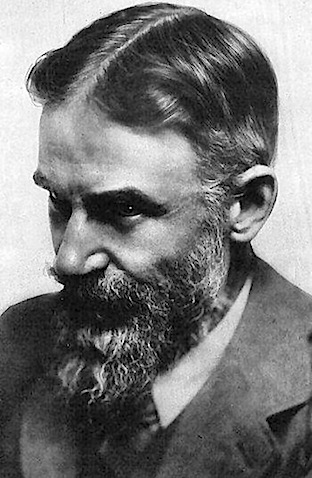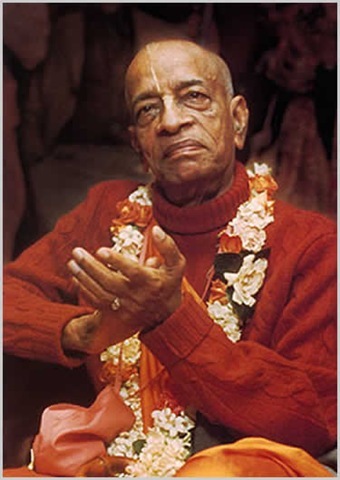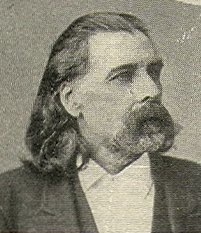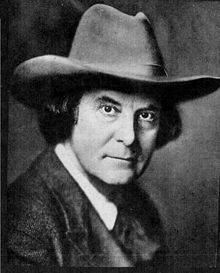Contentment

“Contentment consists not in adding more fuel, but in taking away some of the fire; not in multiplying of wealth, but in subtracting men’s desires.”
–Thomas Fuller (English Clergyman and Writer, 1608-1661)
Producing Happiness

“We have no more right to consume happiness without producing it than to consume wealth without producing it.”
–George Bernard Shaw (Irish Dramatist, Socialist and, in 1925, Winner of the Nobel Prize for Literature, 1856-1950)
Consciousness and Happiness

“Our consciousness seeks happiness because we are part and parcel of the Lord.”
–A. C. Bhaktivedanta Swami Prabhupada (Indian Gaudiya Vaishnava teacher and Founder-Acharya of the International Society for Krishna Consciousness, 1896-1977)

Finding Happiness

“If you ever find happiness by hunting for it, you will find it, as the old woman did her lost spectacles, safe on her nose all the time.”
–Josh Billings (a.k.a. Henry Wheeler Shaw, American Humorist, Essayist and Lecturer, 1818-1885)
Choosing To Be Happy?

For the last two decades, one of the central tenets of the self-help movement has been that we can choose to experience or to be whatever we want.
Many psychologists have also said that human happiness or subjective well-being is largely independent of our life circumstances. Therefore wealthy people are no happier than people of more limited means; married people aren’t much happier than single people and healthy people aren’t much happier than sick people. The keys to happiness are supposed to lie within us, in our attitudes and perceptions.
If these theories are correct – and they are theories – we would predict that changes in our life circumstances would not have long-term effects on our happiness. This has indeed been the dominant model of subjective well-being: people adapt to major life events, both positive and negative, and our happiness stays pretty much constant through our lives, even if it is occasionally perturbed by some big gain or loss. According to the theory, winning the lottery may make you happy for a little while, but it won’t make you happier in the long run.
Not unless you have made the choice to be happy.
Similarly, while a divorce or major illness might throw your life into turmoil for a while, your happiness level will eventually return to where it was before. The idea has been that of sense of subjective well-being has a set point, and that a change in beliefs or attitudes can change the set-point.
But is this true?
New research, and reexamination of old research, is challenging some of the claims of set-point theory.
In this month’s issue of Current Directions in Psychological Science, Richard E. Lucas of Michigan State University and the German Institute for Economic Research, reviews some recent studies suggesting that adaptation to changing life circumstances only goes so far. As he says, “Happiness levels do change, adaptation is not inevitable, and life events do matter.”
To study adaptation, Lucas and his colleagues used data from two large national prospective panel studies, one in Germany and the other in Great Britain. Unlike most previous studies of adaptation, these data were able to capture levels of life satisfaction both prior to and after major life events like marriage, divorce, unemployment, and illness or disability.
Lucas found that not all of life events are created equal. For example, most people adapt quickly to marriage. They have peak in subjective well-being at the time of getting married, but within about two years, their happiness levels return to their previous levels.
People usually adapt to losing a spouse, but it takes a lot longer: on average about seven years. People who get divorced and people who become unemployed, however, do not usually return to the level of happiness that they experienced before. The same can be said about physical debilitation. Numerous recent studies have demonstrated that major illnesses and injury result in significant, lasting decreases in subjective-well being.
But Lucas also found that individual differences play an important role. There is a great deal of individual variation in the degree to which people adapt to what life throws at them. We know that life events run in families: there is a genetic predisposition to having multiple life events. People who are destined to experience certain life events differ in their subjective well-being from those who do not, even before the occurrence of those events. As an example, people who were happy 5 years before their marriage, stay married, and also stay happier than those who are destined to marry and get divorced.
Lucas stresses that his findings do not undercut the importance of adaptation processes. Some degree of adaptation necessarily protects us from prolonged emotional states that may be harmful, and helps us attune to novel threats to our well-being rather than dwell on ones we are familiar with. Adaptation also helps us detach from goals that have proven unrealistic.
So what does this mean to us personally? It is rather like the statement attributed to the German priest and scholar Martin Luther, “Pray as if everything depends on God. Then work as if everything depends on you.”
- Make the choice to be happy, but that choice will, on its own, achieve little unless you also work to change your life circumstances
- The choice to be happy will not be crowned with success unless you really feel that you want it deep down inside: it has to be a core desire
- Not everyone can make the choice because they are not wired that way
- Do not be disheartened if you make the choice to be happy and things don’t quite work out. Some pop psychologists and gurus have told their followers that if they failed to find happiness, then they were inadequate, or did not want it enough. That kind of nonsense can cause needless guilt and suffering. Sometimes life chucks too much at you at once, and it’s okay to be unhappy. It does not mean that you are a wimp, or that you didn’t want happiness enough
- The best way to deal with a world that throws a lot at you is to learn the art and science of resilience and acceptance
But also remember something else: the great sages have always taught that happiness is our natural state, and the art of living is to return to that natural state.
But most importantly, to help others get there as well.
“Action may not always bring happiness; but there is no happiness without action.”
–Benjamin Disraeli, 1st Earl of Beaconsfield (English Statesman, Novelist and, in 1868 and from 1874-1880, British Prime Minister, 1804-1881)
“Forgiveness is the key to happiness.”
–A Course in Miracles (Book of Spiritual Principles Scribed by Dr. Helen Schucman between 1965 and 1975, and First Published in 1976)
“Happiness is the very nature of the Self; happiness and the Self are not different. There is no happiness in any object of the world.”
–Ramana Maharshi (Indian Hindu Mystic and Spiritual Teacher, 1879-1950)
Ten Steps to Happiness
People have puzzled about the nature of human happiness and how to control or enhance it since the beginning of time.
A most unusual experiment has just been completed in the town of Slough in the United Kingdom. Six specialists in a variety of disciplines were given the task of making the town happier. The happiness team included a psychologist Richard Stevens; a psychotherapist Brett Kahr; work place specialists Jessica Pryce-Jones and Philippa Chapman; a social entrepreneur Andrew Mawson and Richard Reeves, whose expertise spans philosophy, public policy and economics.
They came up with and tested 10 simple measures that were shown to make people feel happier.
They were:
- Plant something and nurture it
- Count your blessings – at least five – at the end of each day
- Take time to talk – have an hour-long conversation with a loved one each week
- Phone a friend whom you have not spoken to for a while and arrange to meet up
- Give yourself a treat every day and take the time to really enjoy it
- Have a good laugh at least once a day
- Get physical – exercise for half an hour three times a week
- Smile at and/or say hello to a stranger at least once each day
- Cut your TV viewing by half
- Spread some kindness – do a good turn for someone every day
I think that we could all come up with some other strategies for becoming happier, but this is a good start.
“The happiness that is genuinely satisfying is accompanied by the fullest exercise of our faculties and the fullest realization of the world in which we live.”
–Bertrand Russell (Welsh Mathematician, Philosopher, Pacifist and, in 1950, Winner of the Nobel Prize in Literature, 1872-1970)
“We cannot have an exquisite perception of what is good or of what is blessed and happy, unless we have been in the opposite state, in which we have experienced what is not good, not blessed, not happy.”
–Emanuel Swedenborg (Swedish Scientist, Mystic and Philosopher, 1688-1772)
“Happy is he who is good to others; miserable is he who expects good from others.”
–Eknath Easwaran (Indian-American Spiritual Teacher, Professor and Author, 1910-1999)
“Happiness is your nature.
It is not wrong to desire it.
What is wrong is seeking it outside
when it is inside.”
–Ramana Maharshi (Indian Hindu Mystic and Spiritual Teacher, 1879-1950)
“Want, or desire, arises when you are not happy. Have you seen this? When you are very happy then there is contentment. "Contentment" means "no want".”
–Sri Sri Ravi Shankar (Indian-born Spiritual Teacher, who, in 1982, Founded the Art of Living Foundation, 1956-)
“Here is the secret of happiness: Forget yourself and think of others.”
–Swami Paramananda (Indian Spiritual Teacher and Writer, 1907-1972)
“Happiness is within us, and it is ours, but we are always superimposing our own inner joy onto something outside and thinking it comes from there.”
–Swami Muktananda (Indian Spiritual Teacher and Writer, 1908-1982)
“The basic sources of happiness are a good heart, compassion, and love. If we have these mental attitudes, even if we are surrounded by hostility, we feel little disturbance.”
–The 14th Dalai Llama (a.k.a. Tenzin Gyatso, Tibetan Religious and Political Leader, 1935-)
Money Doesn’t Make You Happy!
“Remember that very little is needed to make a happy life.”
–Marcus Aurelius (Roman Emperor and Philosopher, A.D.121-180)
I recently wrote about a common myth: thinking that there is a connection between income level, health and longevity. Once you have passed a certain low threshold, this connection between income and health does not hold. Quite obviously living in abject poverty in the Horn of Africa or on the streets of New York is associated with all manner of physical and psychological challenges, but once people have reached a certain economic level there are other far more important determinants of health. We cannot use longevity as a justification for capitalism!
We now have a new piece of research that is also intuitively obvious: there is no link between wealth and happiness. You have only to look at the unhappy lives of so many people in the public eye to see that for yourself, and you have probably seen it in people around you. Many wealthy people are profoundly unhappy and some get into substance abuse or other high-risk activities.
Why should this be? People often tend to exaggerate the contribution of income to happiness because they focus on conventional achievements when evaluating their life or the lives of others.
Like success, happiness is subjective.
When taking stock of your life, it is a really good idea to try and score your levels of happiness, balance and satisfaction along five dimensions: physical, psychological, social, subtle and spiritual. In the book and CD program Healing, Meaning and Purpose, I give some very precise ways of doing that. There’s not much point in living in a big house on a hill, if you are rattling around in it on your own. What contribution are you making? And what will be your legacy?
“Happiness is the very nature of the Self; happiness and the Self are not different. There is no happiness in any object of the world. We imagine through our ignorance that we derive happiness from objects. When the mind goes out, it experiences misery. In truth, when its desires are fulfilled, it returns to its own place and enjoys the happiness that is the Self.”
–Ramana Maharshi (Indian Hindu Mystic and Spiritual Teacher, 1879-1950)
Technorati tags: Happiness Wealth Ramana Maharshi
Happiness and Resilience

For more than two decades, my main focus has been on ways to help people become more resilient to the slings and arrows of outrageous fortune. To enable people to withstand anything that’s thrown at them: physically, psychologically, socially and spiritually. And not just to withstand them but to use adversity as the impetus for growth.
Adversity is a fact of life: it cannot be controlled. But we can control how we react to it.
This is such an important concept.
So many people try and make themselves stronger and stronger, yet there will always be something that can overwhelm the most powerful defenses. I knew of two martial artists in Hong Kong who claimed that they could defeat anyone. They were incredibly strong and had exquisite technique.
Which did not help them one bit when some villains shot them from behind by.
I have come across others who have spent their lives eating and exercising and still dying prematurely. What was the problem? They had not learned the arts of resilience, which include adaptability, flow and seemless integration with the Universe.
Over the next few days I am going to introduce you to some of the techniques that we have developed for enhancing psychological and physical resilience, before going on to reveal some of the secrets for strengthening the subtle fields of your body, and how to maintain dynamic relationships, not just with another person, but with your Higher Self.
One of the manifestations of resilience is happiness, so before we start, I would suggest that you try this small test that was published by the BBC by arrangement with Professor Ed Diener, from the University of Illinois who designed it.
Technorati tags: Resilience Happiness Flow Relationships








